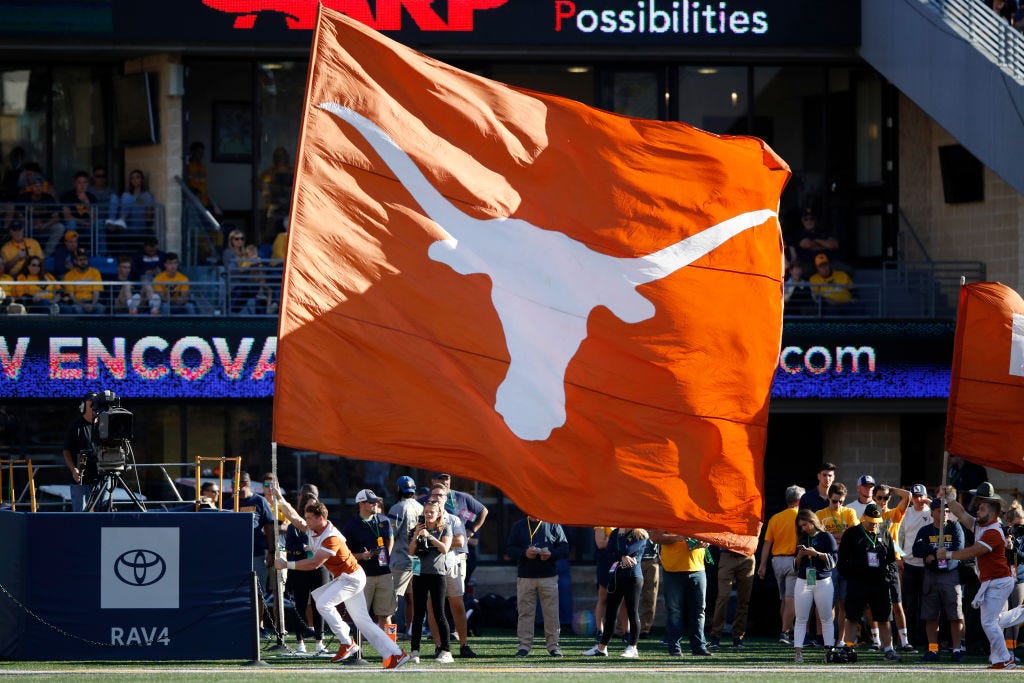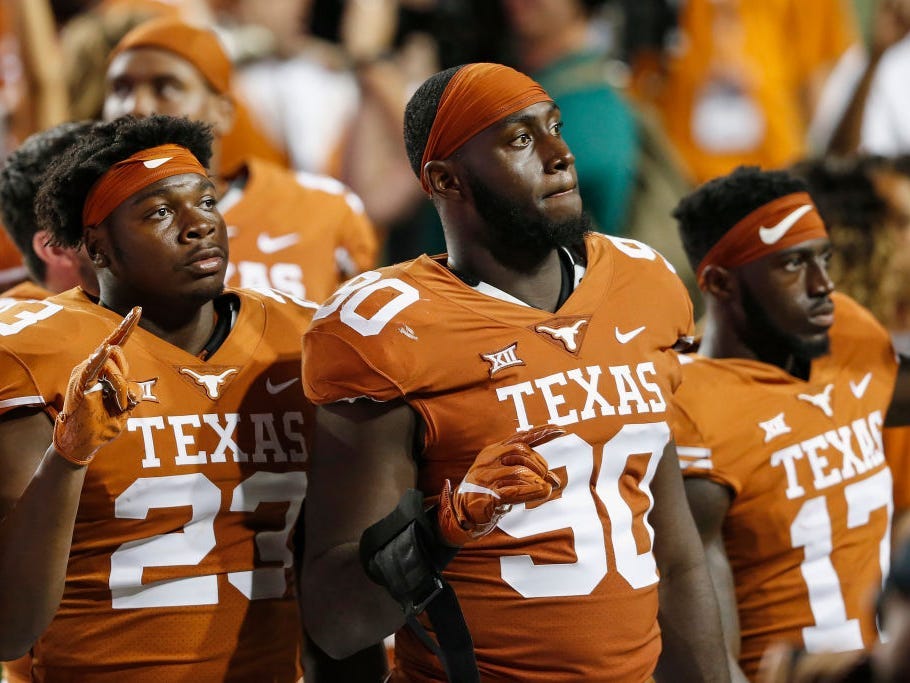
- The University of Texas released a report detailing the origins of its controversial pride song.
- The report confirmed racist details about the song's history.
- The report also outlined steps the university should take to enhance the song's reputation.
- Visit Insider's homepage for more stories.
The University of Texas released an investigative report on Tuesday addressing the controversy surrounding the team's pride song "The Eyes of Texas."
The report confirmed that the song debuted at a minstrel show where students 'likely wore blackface' and that former university president William Prather coined a phrase in the song from a saying among Confederate leaders during the Civil War.
Students, including athletes, at the university, originally launched social activism campaign against the song after the killing of George Floyd last May. The movement came to a head after the football team's loss to Oklahoma in October when the team broke the tradition of staying on the field for the song, as all but one player was absent from the field while the song played.

Tim Warner/Getty Images
The incident sparked outrage among alumni and donors. It was reported by Kate McGee of the Texas Tribune that university alumni and donors threatened to pull donations from the school and endanger the employment prospects of the school's football players if they didn't stand for the song after games. Some student-athletes even said that athletic administrators forced them to stay on the field during the song to appease donors.
The controversy also culminated in disagreements and disputations that the song was linked the song to slavery and minstrel shows, as defenders of the song claimed it did not have any racist undertones. The biggest points of controversy were claims that the song's title is linked to a phrase by Confederate Gen. Robert E. Lee and that it had, on multiple occasions, been performed by individuals in blackface.
In response to the controversy, the university assigned a 24-member committee to investigate the song's history and the claims that it is rooted in racism. The committee could not find primary documents that specifically tied the phrase to Lee and concluded that the song's intent was "not overtly racist."
The committee did find that it had been performed at minstrel shows, and while it couldn't definitively confirm that individuals in blackface performed it, it still concluded that it 'very likely' was.
"Our research reveals that the song was intended to affectionately parody President Prather's famous signatory line. That 'The Eyes of Texas' was most probably debuted in blackface is a painful reality of the song's origin," the report stated.
"Neither the printed program for the show nor reviews afterward identified cast members as specifically wearing blackface or not. No photographs from the show have been found ... It was performed by the 'Varsity Quartette,' identified in the program as consisting of 'Messrs. Kivelin, Bolin, Smith and Johnson.' Kivelin, Bolin and Smith were also listed as Circle Men. Johnson was one of the Bones characters. All were presumably in blackface."
The report made a point to acknowledge aspects of the song's history as "disturbing" and "unfortunate," but still insisted it remains the school's anthem. However, the report concluded with a list of potential communication strategies to memorialize the history of "The Eyes of Texas" and alter its racist reputation.
These strategies include implementing a standard teaching the song's history at all student orientations, developing an interactive multimedia website to promote the song's history honestly, producing a big-budget documentary on the song and its usage over time, devoting a section at the university's athletics hall of fame to showcasing the committee's findings, and constructing a statue of the school's first Black football player Julius Whitter to 'remind students of color that they are part of the university's history as well.'
Current university president Jay Hartzell weighed in on potential steps to restore the song's reputation and supported the actions of his student-athletes during an interview on Longhorn Network. Hartzell said he hopes that conversations that include student-athletes will allow the community to eventually re-embrace the song as it did in prior years, but reiterated that no one is required to stay on the field when the song plays.
-Longhorn Network (@LonghornNetwork) March 9, 2021
"I really feel for some of the vitriol [the student athletes] have faced and suffered from," Hartzell said. "I think it's unfair. They were doing what they should do. They used their voice, they took a step, and we're in a better place now than we were before because of it."